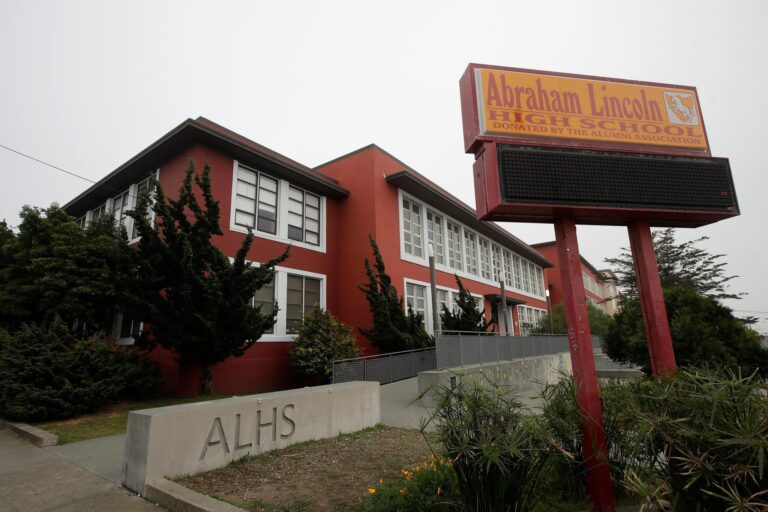San Francisco School Board Opts to Keep Historic School Names Amid Ongoing Debate
In a decision that sparked considerable discussion, the San Francisco school board voted to maintain the names of schools honoring Thomas Jefferson, Abraham Lincoln, and George Washington. These names have been at the center of a broader national dialogue about how society should commemorate historical figures whose legacies include both notable achievements and controversial actions. After extensive community engagement and historical review, the board chose to preserve these names, emphasizing the importance of contextual education over erasure.
Key considerations that shaped the board’s resolution included:
- Gathering diverse community feedback reflecting a range of perspectives
- Enhancing educational programs to present a fuller, more critical view of history
- Recognizing the accomplishments of these figures while openly addressing their problematic aspects
| School | Historical Figure | Controversial Aspect | Board’s Approach |
|---|---|---|---|
| Jefferson Elementary | Thomas Jefferson | Slave ownership and racial contradictions | Keep name; integrate comprehensive history lessons |
| Lincoln High | Abraham Lincoln | Complex racial views and policies | Retain name; provide nuanced legacy context |
| Washington Middle School | George Washington | Slaveholding background | Preserve name; encourage full historical discussion |
Divergent Community Opinions on Keeping Jefferson, Lincoln, and Washington Names
The decision to uphold the names of Jefferson, Lincoln, and Washington schools has revealed a split within San Francisco’s multifaceted community. Advocates for retention argue that these names symbolize essential American ideals such as democracy, leadership, and nation-building. Many parents and former students express concern that renaming could disrupt cultural continuity and create confusion for younger generations. Educators supporting this stance emphasize the value of teaching history in its entirety, encouraging critical engagement rather than censorship.
Conversely, opponents contend that continuing to honor these figures without change overlooks the painful realities of systemic racism and oppression tied to their histories. Activists and some community members urge renaming as a step toward reflecting San Francisco’s dedication to equity and inclusion. They highlight the powerful role school names play in shaping students’ identities and sense of belonging. Below is a breakdown of the main community viewpoints:
- Retention Supporters: Stress historical importance and educational opportunities
- Renaming Advocates: Emphasize social justice and representation for marginalized communities
- Moderates: Call for balanced solutions combining tradition with progressive reforms
| Group | Core Concerns | Recommended Actions |
|---|---|---|
| Retention Supporters | Preserving historical continuity and identity | Expand history education with critical perspectives |
| Renaming Advocates | Confronting racial injustice and exclusion | Rename schools to honor diverse and inclusive figures |
| Moderates | Finding middle ground between heritage and progress | Facilitate community dialogues and consider dual naming options |
Expert Perspectives on the Effects of Retaining Traditional School Names
Scholars and education specialists highlight that keeping names like Jefferson, Lincoln, and Washington acknowledges the multifaceted nature of America’s founding figures while promoting critical historical inquiry. Proponents of preservation argue that these names serve as catalysts for students to explore the full spectrum of these leaders’ legacies, including their contradictions and moral complexities. This method fosters a richer, more informed understanding of history rather than simplifying or erasing it.
Meanwhile, sociologists point to the symbolic significance of institutional names, underscoring concerns about inclusivity and representation. The choice to maintain these names reflects a deliberate effort to balance respect for historical heritage with the need to engage contemporary social values. Educational experts identify several benefits of this approach:
- Heritage Preservation: Sustains community identity and pride.
- Critical Education: Encourages analytical thinking through contextualized history lessons.
- Dialogue Facilitation: Opens pathways for conversations about social justice and historical accountability.
Strategies for Promoting Inclusive Education in San Francisco Schools
To foster a more equitable educational environment, schools should emphasize curriculum inclusivity that incorporates diverse voices and perspectives. This includes integrating literature, historical accounts, and contributions from underrepresented communities to provide students with a comprehensive view of American history beyond traditional narratives. Educators are pivotal in facilitating open, respectful discussions on complex topics, encouraging students to think critically rather than memorize facts. Ongoing professional development in cultural competency is essential to equip teachers with the skills needed to nurture inclusivity and respond thoughtfully to diverse student experiences.
Concrete measures for advancing inclusivity in schools may include:
- Adopting restorative justice frameworks to reduce disciplinary disparities
- Involving community stakeholders, particularly marginalized groups, in policy development
- Expanding bilingual education and support for English Language Learners
- Establishing advisory committees to review curricular content for bias and gaps
- Leveraging digital tools to showcase diverse historical narratives through multimedia
| Initiative | Expected Outcome | Target Timeline |
|---|---|---|
| Culturally Responsive Pedagogy | Higher student engagement and achievement | By the 2024 academic year |
| Community Engagement | Stronger partnerships between schools and neighborhoods | Ongoing |
| Restorative Discipline Practices | Lower suspension and expulsion rates | Within two years of implementation |
Conclusion: Reflecting on San Francisco’s Choice and the Broader National Dialogue
As debates over the naming of schools continue to unfold across the United States, San Francisco’s resolution to keep the names Jefferson, Lincoln, and Washington stands as a significant example of navigating the tension between honoring historical legacies and responding to calls for social justice. While some view these names as emblematic of core American principles, others see them as symbols requiring reevaluation in light of their complex histories. This decision exemplifies the ongoing challenge communities face in reconciling tradition with inclusivity, a conversation that will undoubtedly evolve as society seeks to create educational spaces that respect both history and diversity.




